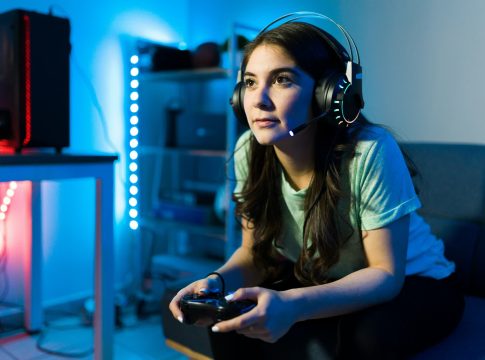Video Games and Stress Relief: A New Perspective
In the ongoing discussion about video games, many people have long viewed them with suspicion, often linking them to negative societal outcomes. However, emerging research offers a fresh perspective, suggesting that video games—both violent and non-violent—can actually serve as tools for stress reduction.
New Insights from Recent Research
A recent study, led by Gary Wagener and his team, investigated how gaming can impact stress levels. They centered their research on A Plague Tale: Requiem, a popular action-adventure game that immerses players in a world filled with challenges. The findings indicate that gaming could offer emotional relief, potentially reshaping how we view video games in our lives.
Study Overview
The research engaged 82 participants aged 18 to 40, of whom 42 were women. Most of the participants (79%) had prior gaming experience, spending an average of four to five hours a week playing video games.
To elicit stress, participants underwent a known procedure called the Socially Evaluated Cold Pressor Test. This method requires individuals to submerge one hand in ice-cold water for three minutes while being observed, thereby inducing physical and psychological discomfort.
A Relaxing Experience
Following the stress-inducing test, participants were divided into two groups. One group played violent scenes from A Plague Tale: Requiem, while the other engaged with non-violent segments of the same game. Researchers monitored heart rates, collected saliva samples, and distributed questionnaires to gauge stress levels.
Interestingly, participants who played violent scenes reported feeling more stressed. In contrast, those who engaged with non-violent content felt a greater sense of relaxation. However, physiological measurements revealed that both groups experienced a reduction in stress after their gaming sessions. This discrepancy suggests that individuals may misjudge their own stress levels based on the gaming experience.
Understanding the Findings
The contrasting self-reported stress levels versus physiological data imply a complex relationship between our perceptions and reality. The intensity of the gaming experience, especially when engaging in violent scenes, could lead participants to view those moments as more stressful than they might physically be.
Practical Takeaways
This research invites us to reconsider how we perceive gaming and its potential benefits. Here are a few practical insights to help navigate your own gaming habits:
-
Self-Assessment is Key: Pay attention to how different games make you feel. Are there specific genres that help you unwind? Engage in reflection after gameplay to better understand your emotional state.
-
Mix It Up: Try balancing your gaming sessions with both intense and calming games. This variety allows you to experience different emotional responses and might enhance overall well-being.
- Listen to Your Body: Monitor your physical reactions while gaming. If certain games leave you feeling drained, consider stepping back or switching to a different type of game.
Conclusion
This study sheds light on the potential of video games as effective stress-relief tools, reminding us that gaming can offer more than just entertainment. As we rethink the narratives surrounding video game content, it’s essential to engage with these experiences mindfully. After all, understanding our emotions in both virtual and real-world contexts can lead to healthier choices and richer gaming experiences.

Covers wellness, nutrition, mental health, and daily life tips.
Bio: Talia brings a background in health journalism and holistic living to help readers live better, one tip at a time.

